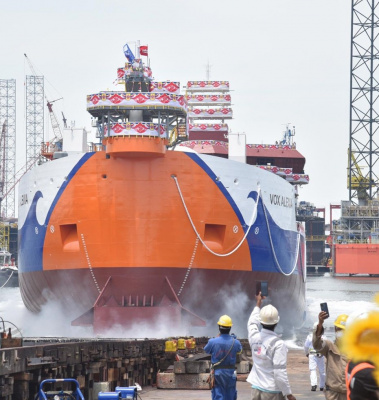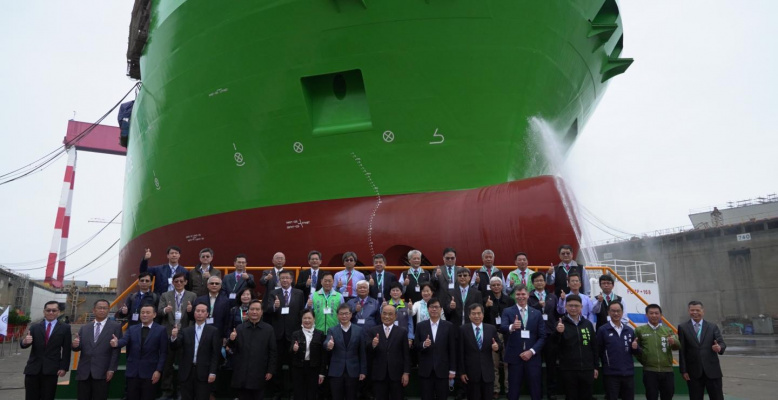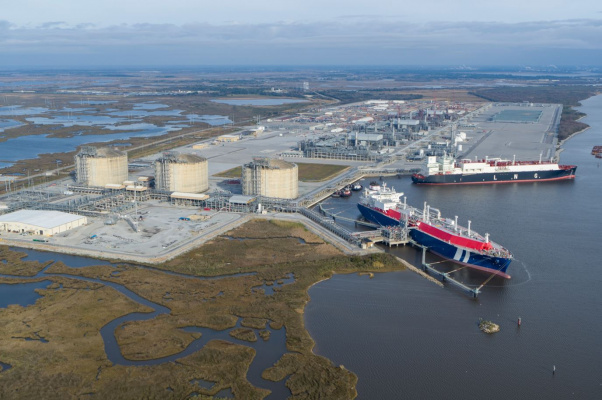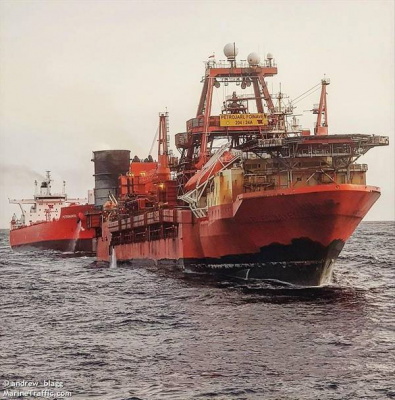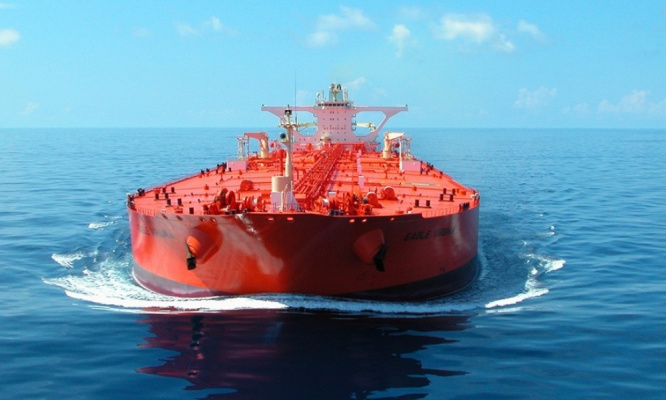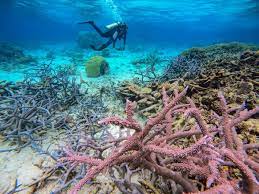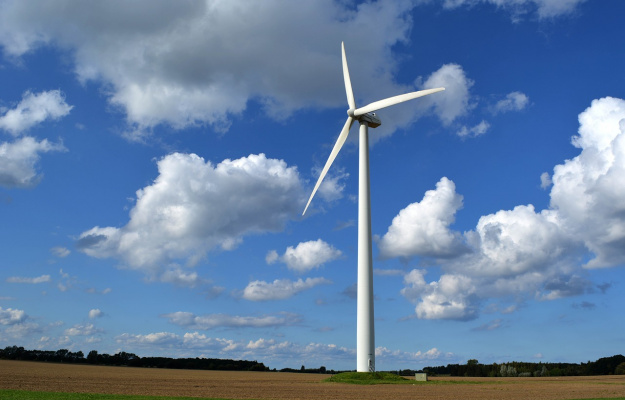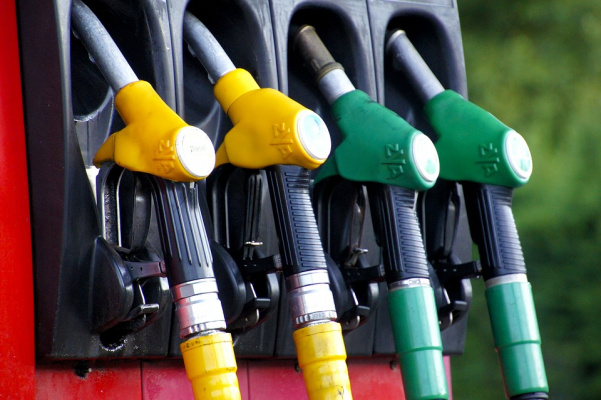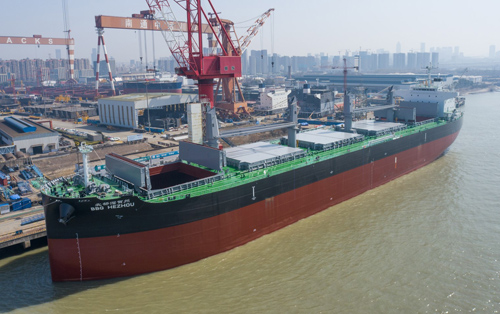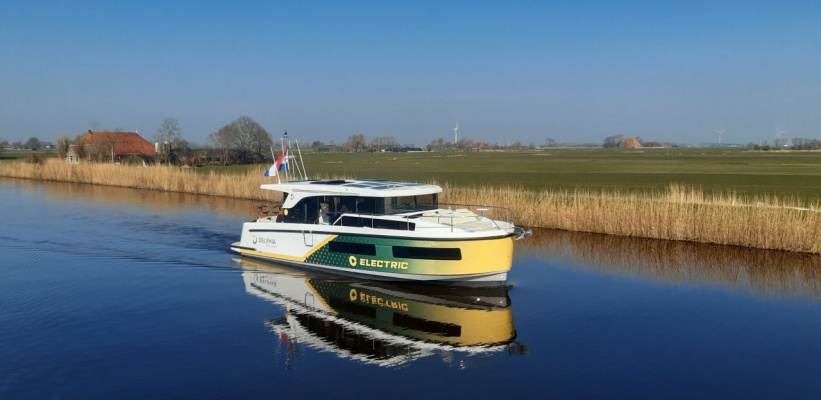Offshore, merchant and drilling news
Major Milestone for Second Revolutionary Offshore Installation Vessel In Deme Fleet
Read moreSempra and partners ink deal on Cameron LNG expansion
Read moreFire on North Sea FPSO Forces Partial Evacuation of Staff
Read moreWorld’s First Ammonia-Powered VLCC on Track for 2025 Launch
Read moreRecent Breakthroughs Bring Renewed Hope for Great Barrier Reef
Read moreSiemens-Gamesa Opens World's First Integrated Offshore Wind Factory
Read moreGrowing risk of delayed approval of the leasing program
Read moreKawasaki Heavy Industries, Ltd. поставила балкер BBG HEZHOU в Наньтонг COSCO KHI Ship Engineering Co.
Read moreUSA Energy Groups Talk 180MM Barrel SPR Release
Following an announcement by U.S. President Joe Biden to release 180 million barrels of oil from the Strategic Petroleum Reserve (SPR), the American Petroleum Institute (API) has highlighted that the act is not a long-term solution.
“There are many factors behind rising energy costs, from geopolitical volatility and supply chain constraints to policy uncertainty, and the American people deserve real solutions,” API President and CEO Mike Sommers said in an organization statement.
“The SPR was put in place to reduce the impact of significant supply chain disruptions, and while … [this] release may provide some short-term relief, it is far from a long-term solution to the economic pain Americans are feeling at the pump,” Sommers added in the statement.
“The best thing the White House can do right now is to remove barriers to investment in American energy production and infrastructure,” Sommers continued.
Energy Workforce and Technology Council CEO Leslie Beyer, said, “instead of … releasing additional oil from our emergency reserves, we urge the president to direct the department of interior to immediately restart the federal leasing program … and to engage in a constructive discussion with U.S. energy producers on steps we can take to all work together to provide America and our allies with real energy security”.
A White House fact sheet released on March 31, which highlighted that gas prices had increased by nearly a dollar per gallon, outlined that Biden would announce the largest release of oil reserves in history, putting one million additional barrels on the market per day on average, every day, for the next six months.
“The scale of this release is unprecedented. The world has never had a release of oil reserves at this one million per day rate for this length of time. This record release will provide a historic amount of supply to serve as bridge until the end of the year when domestic production ramps up,” the fact sheet stated.
According to the fact sheet, the U.S. Department of Energy will use the revenue from the release to restock the SPR in future years. The fact sheet also noted that Biden is coordinating the SPR action with allies and partners around the world and stated that other countries are expected to join in this action, bringing the total release to “well over an average one million barrels per day”.
Successful launch for Delphia 11
Read moreMaersk Drilling successfully tests use of sustainable diesel on Maersk Interceptor with 94% CO2 emissions reduction
In February 2022, Maersk Drilling successfully completed a test running rig engines on 100% sustainable diesel on board Maersk Interceptor, resulting in a more than 94% reduction of CO2 emissions.
Maersk Drilling successfully tests use of sustainable diesel on Maersk Interceptor with 94% CO2 emissions reduction
The test was conducted while the rig was alongside in Grenaa, Denmark and marks a new milestone on Maersk Drilling’s decarbonisation journey. The successful test confirms that Maersk Drilling is able to offer an immediate and direct choice for its customers to significantly reduce their CO2 footprint during drilling operations. Within offshore drilling, it is industry standard that the customer takes responsibility for the supply of and payment for the fuel used during drilling campaigns and hence is directly responsible for the associated CO2 emissions.
After a pre-engine inspection was conducted and approvals were obtained from the engine manufacturer, 35 m3 of hydrotreated vegetable oil (HVO) biofuel was utilised in Maersk Interceptor’s Wärtsilä 9L 26 engines including both single and parallel engine operations and providing a very high level of CO2 reductions at 94% compared to the rig’s baseline.
“The results from this test were extremely positive. Not only did we document a great CO2 savings potential, we also confirmed our initial assumption that we would be able to reach an almost identically high level of engine performance by running drilling operations on sustainable diesel. We are confident that we could do this on all our rigs based on feedback from the relevant engine manufacturers,” says Jan Høffner, Lead Mechanical Engineer, I&P - Technology.
The HVO used for the test was produced in the Netherlands by Neste and delivered by Bunker One. It is a 100% fossil-free fuel that can be produced from a wide variety of sustainable feedstocks and its fuel performance is almost identical to fossil-based diesel. This renewable fuel is of high quality and can be used as blend-in fuel at any preferred ratio, as it is fully compatible with marine gas oil and fulfills the required specification according to ISO 8217. In this way, using HVO can contribute to meeting CO2 emission reduction targets with no need for engine modifications.
“While sustainable diesel comes at a cost premium and may not be readily available everywhere, it offers a solution for companies who are looking to respond to the climate challenge and want to take significant steps towards fulfilling net-zero pledges. At Maersk Drilling we are committed to doing our part in realising a Sustainable Energy Future, including helping our customers meet their climate ambitions, and investing in this test was an important step in the right direction. This test was performed with 100% HVO, but customers could alternatively choose to mix sustainable diesel with traditional diesel at a lower ratio, which would still reduce emissions,” says Mikkel Søndergaard Pedersen, Technical Superintendent, Stacking Team North Sea Division.
In 2020, Maersk Drilling launched its sustainability strategy including an ambitious target of reducing the CO2 intensity from its drilling operations by 50% by 2030. The work towards reaching this target is led by the company’s Emissions Reductions Task Force, which is exploring several tracks including low-emission rigs, use of shore power, leveraging energy efficiency systems to drive behavioural changes, and the potential for replacing traditional diesel with alternative fuels.
Maersk Interceptor is an ultra-harsh environment CJ70 XLE jack-up that is designed for year-round operations in the North Sea and was delivered in 2014.


